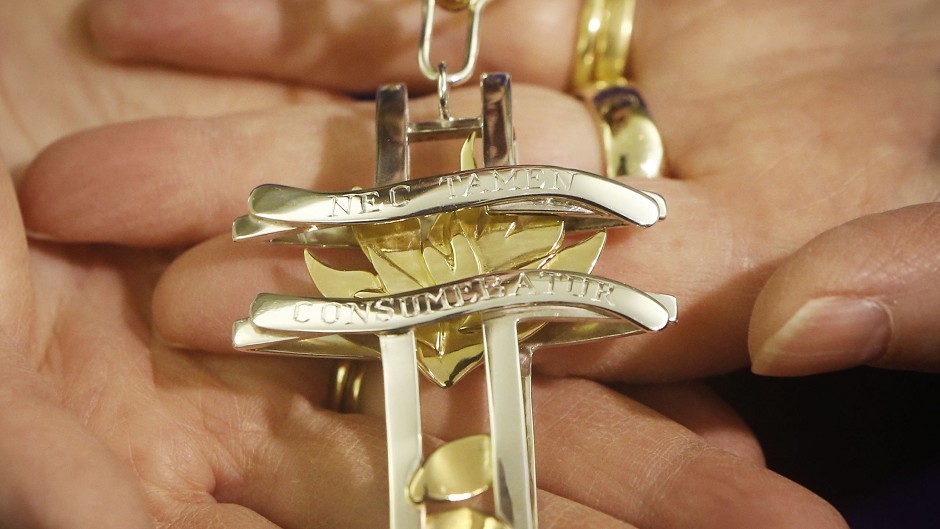An attempt to derail controversial proposals to allow the ordination of gay clergy was defeated at the General Assembly yesterday.
Following a passionate all day debate, commissioners voted by 369 votes to 189 to refer a so-called mixed economy proposal to Kirk presbyteries for further consideration.
Under the plans which will be discussed by the General Assembly next year, the Kirk would retain the traditionalist position – a ban on gay people in relationships becoming ministers – as its default stance.
But congregations could opt in to a policy to appoint a minister who falls into that category if they wished under a “conscience clause”.
The proposal is aimed at ensuring both sides of the debate are accommodated within the legal framework of the Kirk.
The issue was sparked by the appointment of the Rev Scott Rennie to Queen’s Cross Church in Aberdeen in 2009.
A motion urging commissioners to refer the matter to presbyteries was championed by the Rev Alan Hamilton, convener of the Kirk’s legal questions committee.
He said the proposal represented a “balanced and practical package of measures” which “honours the Church’s desire for greater peace and unity”.
Mr Hamilton admitted the proposal was not without risk in terms of legal challenge but that should not deter the Kirk making a theological decision.
“We understand the anguish and pain felt by good people on all sides of the debate,” he added.
“It is new and unfamiliar but this overture offers new ways for new challenges in new times.”
Edinburgh minister the Rev Jeremy Middleton tried to defeat the proposal by tabling a counter-motion which affirms the Kirk’s current policy that heterosexual marriage is the “only right and proper context for sexual relations”.
He claimed allowing congregations to appoint gay ministers was “un-biblical” and the proposal was “risky, ragged, illogical and surely wrong”.
Mr Middleton was backed by Presbytery of Inverness ministers the Rev Hector Morrison, the Rev David Scott and elder Farquhar Forbes.
After the vote Kirk evangelical group Forward Together said was “deeply saddened and dismayed” by the vote.
A statement said: “We urge all members who are shocked and appalled by this decision not to act hastily but to engage fully in the debate that will now take place at presbytery level.”
